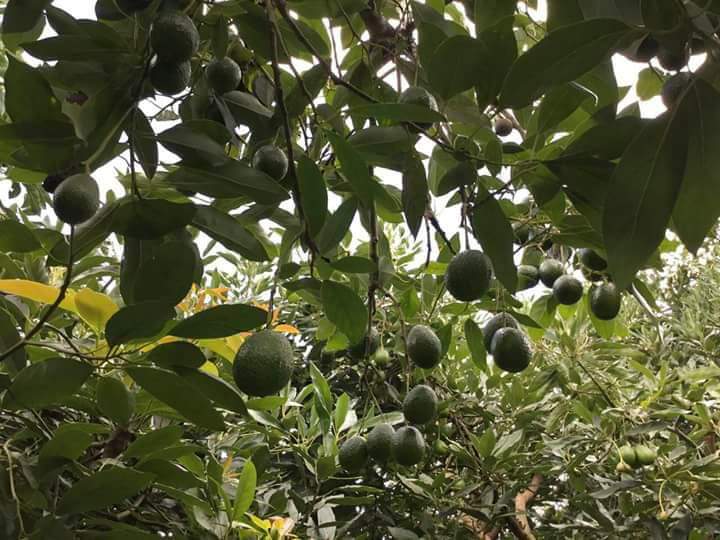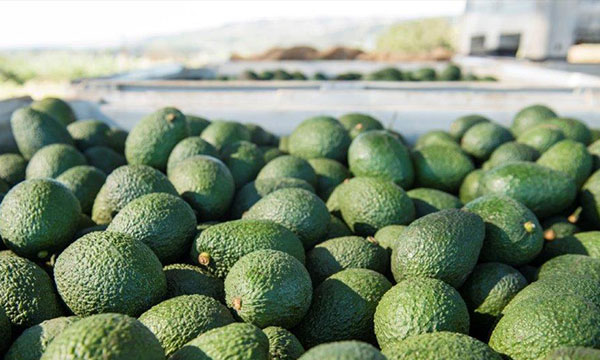
The country imposes a two- to threemonth close of season every year to prevent the export of immature fruits. Avocado fruit export is among the leading foreign exchange-earners for Kenya.
According to Horticulture Crops Directorate (HCD) 2017-2018 validated report, avocados accounted for 84.48 percent of Kenyan fruits exported by value — equivalent to approximately USD 108.39 million.
Kenya produced 365,000 tons of avocado fruits in 2019, a 60 percent increase from 145,000 tons 10 years before.
The top importers of Kenya avocado fruits are the Netherlands, the United Arabs Emirates, France, Spain, Russia, and the United Kingdom. Many farmers in Kenya have diversified or shifted away from other commercial crops such as coffee and tea to avocado, which has become lucrative in the export market.
Despite the Covid-19 pandemic’s farreaching economic consequences around the globe, the demand for avocados increased in the international market.
Kenya exported 87,000 tons of the fruit in 2021 from 72,000 tons in 2020, representing a 24 percent increase in volumes. However the value for avocado exports in 2021 stood at USD 133.15 million, a drop from USD 133.63 million in the same period in 2020.
Further, the value per kilo dropped by USD 0.37 from USD 1.90 in 2020 to USD 1.53 in 2021. The lower prices fetched in the overseas markets was attributed to the export of immature fruits and poor post-harvest handling, underscoring the need for the growers and exporters to improve their practices to gain more value in the market.
To meet international quality standards avocadoes should be harvested when mature, intact, clean, free from external moisture, and free from pests or damage. The maturity of avocado for fresh fruit is determined by dry matter and oil contents.
The recommended dry matter content for fresh fruits is between 21 percent and 25 percent and a minimum of 11.2 percent of oil content. In addition to confirming dry matter and oil contents, exporters must have modern and suitable post-harvest handling technology to be able to export quality fruits.
Avocado harvesting and postharvest handling practices include using clean tools during harvesting, temporary storage of harvested fruits in appropriate collection sheds, and protecting harvested avocados from dust and other contaminants.
Personnel handling the fruits should have skills and knowledge in food safety. After harvesting, the fruits should be packed in clean crates and transported to pack-houses for grading in refrigerated trucks that are set at 160 C maximum.
Packed and graded avocado fruits are stuffed in reefer containers and transported from pack-houses to the port of Mombasa and shipped to various destinations across the globe in containers designed to maintain the temperature and humidity at a constant value during the whole transit time.
However, Kenya is at risk of losing this lucrative market due to export of immature avocados by some dealers. An estimated 70 percent of Kenyan avocados are produced by smallholder farmers who do not have the capacity to export the fruits themselves.
Consequently, these farmers market their produce either through middlemen, who do not adhere to harvesting and post-harvest handling protocols for export companies. Sometimes, the brokers persuade farmers to harvest avocado fruits before they are ready for harvesting just to gain the margins. These middlemen transport harvested avocado fruits to packhouses in small open trucks and pick-up trucks, exposing the fruit to the sun and extreme temperatures thereby reducing the fruit quality.
This reduces the desire and preference for Kenyan avocado fruit as compared to avocados originating from Kenya’s competitors in the business; Mexico, Peru, and Colombia. Therefore, there is a clarion call to all the players in this important business to work together and ensure that only mature and good quality avocados are harvested and exported to safeguard and expand the share of Kenyan avocados in the international market.
Hosea Machuki, Chief Executive Officer, Fresh Produce Exporters Association of Kenya ceo@fpeak.org
These middlemen transport harvested avocado fruits to pack-houses in small open trucks and pick-up trucks, exposing the fruit to the sun and extreme temperatures thereby reducing the fruit quality.
CREDIT: https://panagrimedia.com/safeguarding-kenyas-avocado-export-market/




